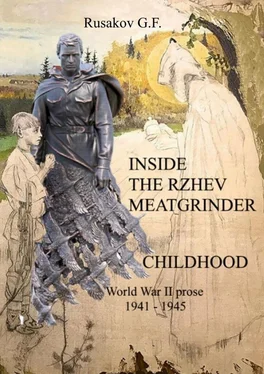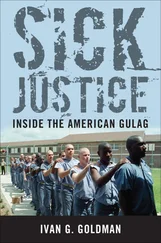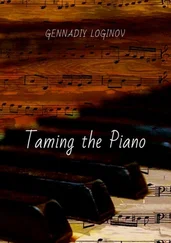Gennadiy Rusakov - Inside the Rzhev Meatginder
Здесь есть возможность читать онлайн «Gennadiy Rusakov - Inside the Rzhev Meatginder» — ознакомительный отрывок электронной книги совершенно бесплатно, а после прочтения отрывка купить полную версию. В некоторых случаях можно слушать аудио, скачать через торрент в формате fb2 и присутствует краткое содержание. ISBN: , Жанр: Историческая проза, на английском языке. Описание произведения, (предисловие) а так же отзывы посетителей доступны на портале библиотеки ЛибКат.
- Название:Inside the Rzhev Meatginder
- Автор:
- Жанр:
- Год:неизвестен
- ISBN:9785005909947
- Рейтинг книги:5 / 5. Голосов: 1
-
Избранное:Добавить в избранное
- Отзывы:
-
Ваша оценка:
- 100
- 1
- 2
- 3
- 4
- 5
Inside the Rzhev Meatginder: краткое содержание, описание и аннотация
Предлагаем к чтению аннотацию, описание, краткое содержание или предисловие (зависит от того, что написал сам автор книги «Inside the Rzhev Meatginder»). Если вы не нашли необходимую информацию о книге — напишите в комментариях, мы постараемся отыскать её.
Inside the Rzhev Meatginder — читать онлайн ознакомительный отрывок
Ниже представлен текст книги, разбитый по страницам. Система сохранения места последней прочитанной страницы, позволяет с удобством читать онлайн бесплатно книгу «Inside the Rzhev Meatginder», без необходимости каждый раз заново искать на чём Вы остановились. Поставьте закладку, и сможете в любой момент перейти на страницу, на которой закончили чтение.
Интервал:
Закладка:
Inside the Rzhev Meatginder
Gennadiy Fedorovich Rusakov
Editor Yulia Dmitrievna Gavrilenko
Proofreader Elena Gennadievna Rusakova
Proofreader Yuliya Nikolaevna Boyarinova
Cover designer Yulia Dmitrievna Gavrilenko
Translator Vsevolod Mikhailovich Petrunev
© Gennadiy Fedorovich Rusakov, 2022
© Yulia Dmitrievna Gavrilenko, cover design, 2022
© Vsevolod Mikhailovich Petrunev, translation, 2022
ISBN 978-5-0059-0994-7
Created with Ridero smart publishing system
Rusakov GenNadiy Fedorovich
INSIDE THE
RZHEV MEATGRINDER
CHILDHOOD
World War II prose
1941—1945
People!
As long as the hearts are pounding, —
Remember!
At what
Price
happiness has been won, —
please remember!
Requiem (Eternal Glory to the Heroes)
Robert Rozhdestvensky
Preface
To my shame, with three higher educations and 58 years behind me, I knew very little, if nothing at all, about the Rzhev arc (Battles of Rzhev). I vaguely remembered the lines of Alexander Tvardovsky: “I was killed near Rzhev, In a nameless swamp…” and that’s it…
“Rzhev arc. Childhood” Rusakov Gennady Fedorovich – a teenager of 8 years by the will of fate found himself with his family between two front lines.
Another facet, a different exposition of the war, no less terrible. After reading the book, I realized that I need to look for information. I typed on the Internet and… the first thing that fell out:
Rzhev meat grinder, forgotten and hushed up until now.
“We were advancing on Rzhev through corpse fields”… You crawl over corpses, and they are piled up in three layers, swollen, teeming with worms, emitting a sickening sweet smell of decomposition of human bodies. The explosion of the shell drives you under the corpses, the soil shudders, the corpses fall on you… The millions of victims near Rzhev were diligently hushed up by Soviet historiography and are still being hushed up. It is because of this that many soldiers are not buried until now.’ Pyotr Mikhin – in the book of memoirs: ‘Ahead is the “valley of death”.
Steeply… I read and look on.
“This silence negated the heroic efforts, inhuman trials, courage and self-sacrifice of millions of Soviet soldiers, was a desecration of the memory of almost a million dead” … Based on TASS materials
After the defeat at Moscow in 1942, German units withdrew to the west. The Soviet General Staff is planning a grandiose offensive – the giant pincers of the Kalinin and Western fronts should close in the area of Vyazma, cutting off and burying four German armies in the Rzhev pocket. But… the operation failed. The Red Army was “bogged down” at Rzhev for fifteen months.
The offensive went down in history as the “Rzhev Meat Grinder”. Rzhev became a symbol of heavy and bloody battles without moving forward.
According to modern data, the demographic losses of the USSR in the Great Patriotic War amounted to 25—27 million people.
Of these, died military personnel – 8,668,400
6,818,300 soldiers died in battles, hospitals and other incidents,
1,850,100 people did not return from captivity
civilian population in the occupation zone – 13,684,700
7,420,400 people deliberately exterminated,
2,164,300 people died in forced labor in Germany
4,100,000 people died from starvation, disease and lack of medical care.
Almost 14 million civilians – think about it – are children, the elderly, women. Unarmed, just killed or starved to death.
Even if you have nothing to do with the art of war and try to stay away from politics – always remember – “For whom the bell tolls!” in fact.
The memorial complex to the Soviet soldier near Rzhev was erected near the village of Khoroshevo, Rzhevsky District, Tver Region, visible from the M-9 highway.
The memorial was erected on the site of bloody battles near Rzhev. It is built on people’s donations. The center of the memorial complex was a 25-meter sculpture of a soldier. The project to create a memorial was implemented by the Russian Military Historical Society with the support of the Union State, the Ministry of Culture of the Russian Federation and the Government of the Tver Region. Based on the materials: MIC Izvestia.
We have to go. To bow down....to the family…
“ It’s necessary – not dead! It’s got to be alive!”
(Requiem. R.Rozhdestvensky)
Gavrilenko Yulia Dmitrievna
The text makes a huge impression… And it’s just a documentary narrative, without any attempt to entice with storylines, twists, denouements… Overwhelming… Perhaps the impression is determined by the fact that this is the text of a familiar person, but rather not.
These memories need to be published everywhere! Marked “must read”!
Boyarinova Yulia Nikolaevna.
INSIDE THE
RZHEV MEATGRINDER
CHILDHOOD
World War II prose
1941—1945
The 75th anniversary of the Great Victory, this tragic and, at the same time, heroic page in the history of our country and all the peoples who lived then in the vast expanses of a still single, multinational state, is approaching. On my desk is the 46th issue of Evening Moscow dated November 20, 2014, where the scheme of hostilities on the “Rzhevskaya Arc” was published.
It was there, in the very center of this arc, that our family found itself in 1941 – 1945.
Chapter 1. The year is 1941. I’m 7 years old.Fire
I met the beginning of the war in the Moscow region, in the urban-type settlement of Novopetrovskoe, where I lived with my father and mother.
I was in my eighth year. We lived renting a small room in a private house. We found ourselves in Novopetrovskoe because in 1934, during a thunderstorm, my maternal grandmother’s house was struck by lightning, the house burned to the ground.
Only my great-grandfather’s elderly father was in the house, he was 104 years old. All the village adults worked in the fields; it was August – the height of the harvesting work. When they saw and realized in the field that he was on fire, his grandmother’s son rode into the village on horseback, but all he managed to do was pull out his grandfather, resting and not understanding what was happening.
Everything was burned, including the property of our family, because after the wedding, my father and mother lived with their grandmother, my mother’s mother, in this village with the offensive name of Tupitsino. They were still building their house, in another, neighboring village, where his father was born and all his relatives lived, with the name Egor’evskoe. It turned out that from the clothes we had only what we were wearing that day.
His father asked the chairman of the collective farm to let him go so that he could earn money for clothes. In collective farms, money was not paid, earnings were accrued in working days. By the decision of the board of the collective farm, my father was released, but not immediately and with the condition that he would return after some time back. He worked in a collective farm as a livestock breeder. Why he ended up in Novopetrovskoe, and not in Moscow, where he worked from the age of eight for a merchant from this village, “a boy on the run”, I do not know. A year later, his mother left for him, and we: my sister, me and my younger brother stayed with my paternal grandmother. But the following year, my mother, having been in the village and leaving again to live with my father, took me with her. Why me, and not my brother or sister, I don’t know.
Читать дальшеИнтервал:
Закладка:
Похожие книги на «Inside the Rzhev Meatginder»
Представляем Вашему вниманию похожие книги на «Inside the Rzhev Meatginder» списком для выбора. Мы отобрали схожую по названию и смыслу литературу в надежде предоставить читателям больше вариантов отыскать новые, интересные, ещё непрочитанные произведения.
Обсуждение, отзывы о книге «Inside the Rzhev Meatginder» и просто собственные мнения читателей. Оставьте ваши комментарии, напишите, что Вы думаете о произведении, его смысле или главных героях. Укажите что конкретно понравилось, а что нет, и почему Вы так считаете.












